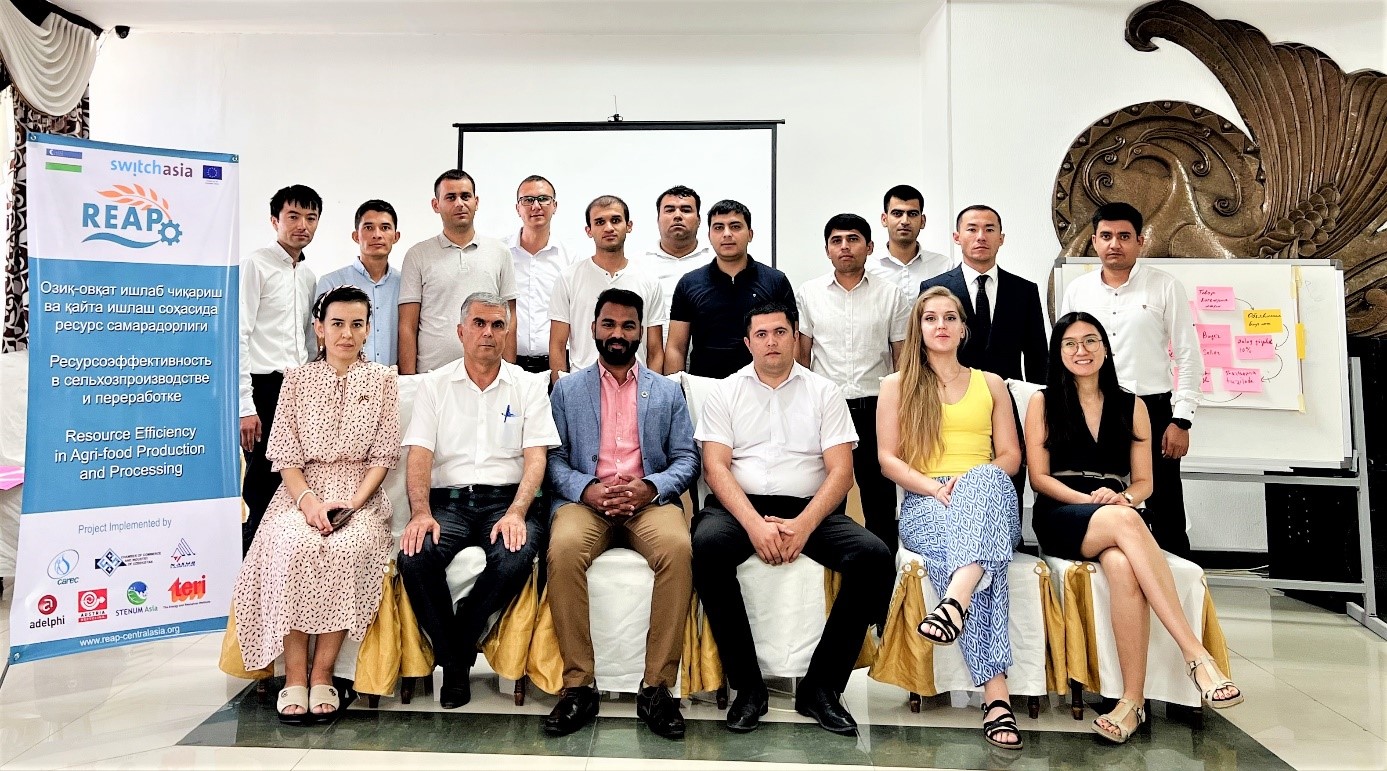
On 14 June 2022, a National Policy Roundtable on SCP was conducted in Bukhara, Uzbekistan in the frames of the Resource Efficiency in Agri-food Production and Processing (REAP) project funded by the European Union SWITCH-Asia programme. The roundtable aimed at sensitizing and informing policy makers to the concept of Sustainable Consumption and Production (SCP), introducing the objectives of the project and encouraging the uptake of SCP practices at the legislative level
Relevant governmental bodies, such as the Department of Industrial Reforms of Bukhara Regional Khokimiyat (regional authority), Department of Investment and Foreign Trade of Bukhara region, Bukhara Regional Department of Agriculture, Department of Pumping Stations and Energy under the Amu-Bukhara Irrigation System Basin Department, Bukhara regional Department of Ecology and Environmental Protection, etc.; academic institutions, namely the Faculty of Energy of Bukhara State University, Bukhara Technology Institute and MSMEs were represented.
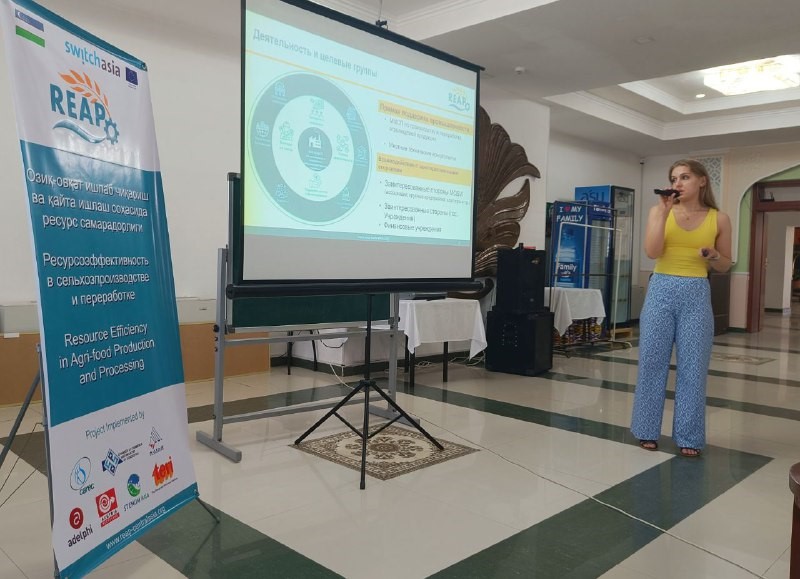
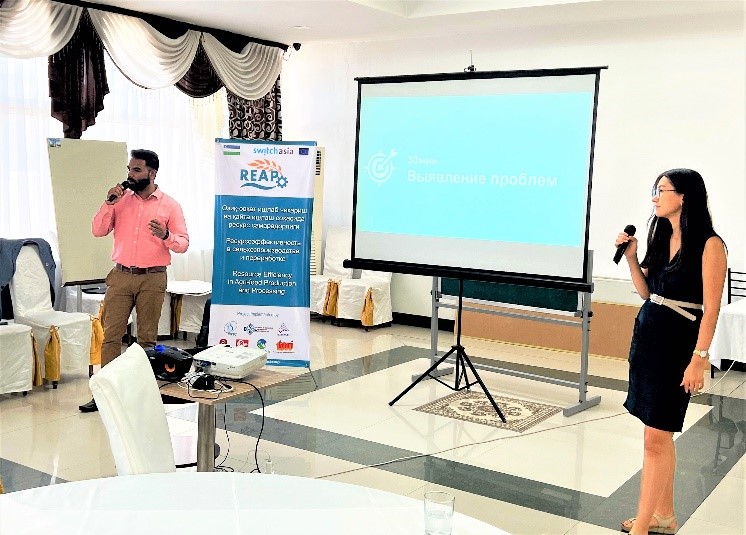
The event started with a presentation of the project, its objectives and components by Ms. Valeriya Orlova, Project Manager from the lead organization - CAREC. Following this, Mr. Turan Makhamatdinov, Project Manager of CCIU, the project consortium partner, described examples of measures implemented in MSME Uzbekistan to increase resource efficiency in the production process and the tangible benefits in monetary value. The ecosystem of SCP legal framework was then presented by Ms. Aikena Orolbaeva, analyst, adelphi gGmbH, outlining the existing legal framework for SCP as well as other regulations and norms of relevance.
Although countries in Central Asia have developed indicators for “green development”, which includes targets on resource efficiency and reduction of hazardous gas emissions to the atmosphere both equal to 20% in the Strategy of development of Uzbekistan from 2022 to 2026 practical mechanisms for reaching these numbers should come into place. The mechanisms to reach resource efficiency are successfully implemented in many countries. Therefore, to provide an overview and examples for brainstorming in group work that followed this session, Mr. Amarnath Munnolimath, Senior Manager of adelphi, Germany presented benchmark of policy solutions/mechanisms on SCP internationally that facilitate countries to shift to cleaner and resource efficient production.
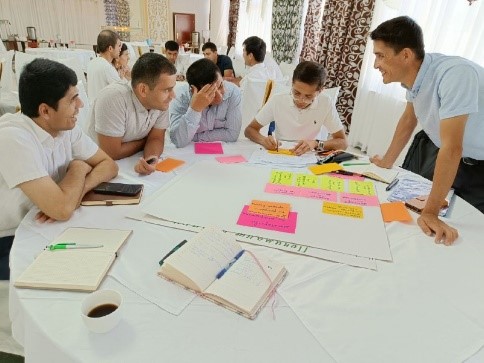
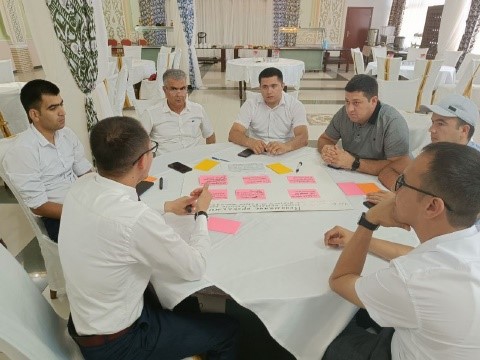
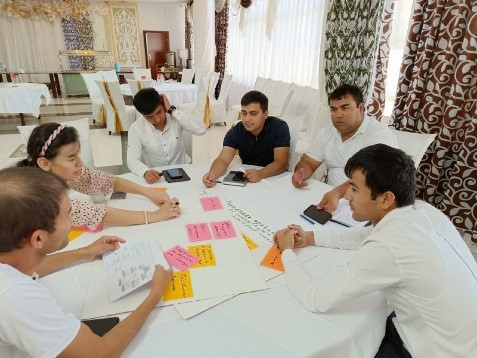
One of the main objectives of the policy roundtable was to create an understanding of the importance of implementing SCP measures/solutions and to prototype potentially locally adaptable solutions/mechanisms to incentivize and facilitate the transition of the agri-processing industry to cleaner production together with the participating stakeholders.
The objective was achieved by organizing group work, with each group having to design their own solution prototypes of policy mechanisms that would facilitate the implementation of SCP practices in MSMEs in the agri-processing sector. Three groups worked and subsequently to presented their draft prototype solutions on the following schemes:
- Sustainable Public Procurement would be based on introduction of new criteria into the current public procurement process
- Green Certification of Industries: System for rating resource efficiency of industries following the example of the GreenCo by Confederation of Indian Industry (CII).
- Nodal Agency to coordinate Resource Efficiency policy and activities
